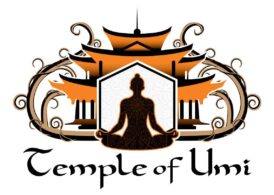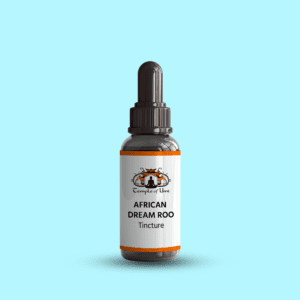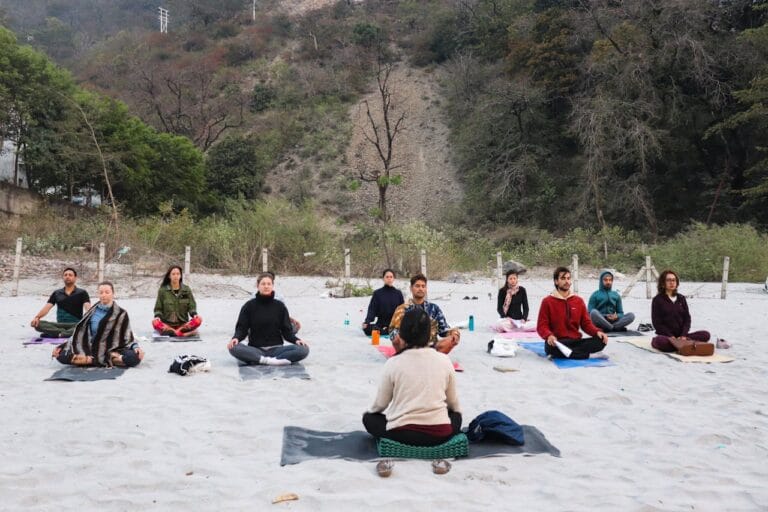Mindfulness

By Temple of Umi

Table of Contents
Embark on a journey of mindfulness to unlock profound benefits for both work and personal life. Embrace the path of continuous practice and exploration for a more aware, compassionate, and fulfilling existence.
Introduction
Definition and Importance of Mindfulness
Mindfulness focuses on the present moment while calmly acknowledging and accepting one’s feelings, thoughts, and bodily sensations. It’s a therapeutic technique rooted in meditation that aims to cultivate active, open attention to the present. Mindfulness’s importance lies in its ability to reduce stress, enhance emotional regulation, and improve overall mental and physical well-being. By fostering mindfulness, individuals learn to observe their thoughts and feelings without judgment, leading to greater peace of mind and increased self-awareness.
Brief History of Mindfulness Practices
Mindfulness originates in ancient Eastern philosophies, notably Buddhism, forming part of the Eightfold Path to enlightenment. Over centuries, mindfulness practices have spread across cultures and have been adapted into various forms of meditation, yoga, and other spiritual and therapeutic practices. In the late 20th century, mindfulness was introduced into Western medicine by Dr. Jon Kabat-Zinn, who founded the Mindfulness-Based Stress Reduction (MBSR) program, blending traditional Buddhist mindfulness techniques with modern psychological insights to help patients cope with pain, stress, and illness.
The Fundamentals of Mindfulness
Understanding Mindfulness
What is Mindfulness?
Mindfulness is maintaining a moment-by-moment awareness of our thoughts, feelings, bodily sensations, and the surrounding environment through a gentle, nurturing lens. It involves acceptance, meaning we pay attention to our thoughts and feelings without believing there’s a “right” or “wrong” way to think or feel at any moment. Mindfulness means living in the here and now, engaging fully with life as it unfolds without undue judgment or distraction. Learn more.
The Psychological and Physical Benefits of Mindfulness
- Psychological Benefits:
- Reduces stress and anxiety levels.
- Enhances emotional intelligence and the ability to handle difficult situations with ease.
- Improves focus and concentration.
- Encourages a more profound sense of calm and inner peace.
- Physical Benefits:
- It lowers blood pressure and reduces chronic pain.
- Improves sleep patterns.
- Enhances immune system function.
- It contributes to a healthier lifestyle and may reduce the risk of certain diseases. Learn more.
The Pillars of Mindfulness Practice
Present Moment Awareness
The cornerstone of mindfulness is living with awareness of the present moment. This means consciously directing your focus to what is happening now, engaging fully with the task, and observing the fleeting nature of your thoughts and feelings without getting swept away.
Non-judgmental Observation
A key aspect of mindfulness is observing thoughts and sensations without criticism or judgment. This involves recognizing and accepting your thoughts, feelings, and sensations as they are without trying to change or resist them. It’s about understanding that no thought or feeling is permanent and that they don’t define your reality.
The Integration of Mindfulness into Daily Life
Incorporating mindfulness into daily life means finding opportunities to practice awareness in everyday activities, whether during a commute, while eating, or in conversations with others. It involves:
- Take short breaks to breathe deeply and center yourself.
- Practicing mindful listening and speaking.
- Observing the sensations of daily activities, like the warmth of the sun or the taste of food.
Mindfulness isn’t just a practice but a way of living that encourages a fuller, more present engagement with the world. Individuals can enjoy a more prosperous, more balanced life by cultivating mindfulness. Learn more.
Mindfulness Meditation Techniques
Mindfulness meditation is a cornerstone of cultivating a more present and aware state of being. Here, we explore accessible techniques that invite tranquility and clarity into your daily life.
- Guided Meditation for Beginners: Embarking on the path of mindfulness can be daunting. Guided meditations provide a structured and supportive way to start. Through audio or video sessions, practitioners are led through mindfulness exercises focusing on breath and body awareness. This gentle introduction helps newcomers find their footing in the practice, establishing a foundation of calm and focus.
- Breathing Techniques for Stress Relief: The breath is a powerful anchor to the present moment and a tool for managing stress. Techniques such as diaphragmatic breathing (deep belly breathing), the 4-7-8 technique (inhaling for 4 seconds, holding for 7, exhaling for 8), and alternate nostril breathing calm the mind and improve physical well-being by reducing stress-related symptoms. Integrating these practices into daily routines can offer immediate relief and long-term benefits. Learn more.

Mindfulness Exercises Beyond Meditation
Mindfulness extends beyond the cushion or chair; it’s a practice that can be woven into the fabric of our daily lives. Here, we explore how to maintain mindfulness through movement and sensory engagement.
- Mindful Walking and Movement: This practice transforms simple walking into meditation. By focusing on the sensation of your feet touching the ground, the rhythm of your breath, and the movement of your body, you can cultivate mindfulness and reduce stress. Mindful movement is a versatile and powerful practice, whether a dedicated walking meditation or being more present during everyday activities.
- Engaging the Senses: A Mindful Approach to Everyday Activities: Mindfulness can turn ordinary tasks into opportunities for presence and joy. Activities like eating, washing dishes, or listening to music can become mindfulness exercises when we fully engage our senses. Paying attention to the textures, colors, sounds, and tastes in our everyday experiences can deepen our appreciation for the moment and reduce feelings of anxiety and overwhelm.
By integrating mindfulness meditation techniques and exercises into our lives, we enhance our mental and emotional well-being and discover a more profound connection to ourselves and the world around us. Whether through guided meditations, breathing exercises, mindful movement, or sensory engagement, mindfulness offers a path to tranquility, clarity, and enrichment in every moment. Learn more.
Overcoming Challenges in Mindfulness Practice
In the journey of cultivating mindfulness, practitioners often encounter various challenges that can seem daunting. Understanding these obstacles and learning strategies to navigate them can significantly enhance the effectiveness and depth of your mindfulness practice.
Common Mindfulness Challenges and How to Overcome Them
- Dealing with Distractions and Restlessness
Distractions and restlessness are the most common barriers to a consistent mindfulness practice. Our minds are naturally inclined to wander, and in today’s fast-paced world, external distractions are ubiquitous. Overcoming these challenges starts with accepting and understanding that distraction is a natural part of mindfulness.
- Strategies:
- Acknowledge distractions without judgment and gently redirect your focus to the present moment.
- Set a specific time and quiet place for your mindfulness practice to minimize external interruptions.
- Use guided meditations to help maintain focus during your practice.
- Navigating Emotional Turbulence During Practice
Mindfulness can sometimes surface uncomfortable emotions and thoughts. This is a normal part of the process, as mindfulness directly encourages us to confront our inner experiences.
- Strategies:
- Approach your feelings with curiosity rather than avoidance. This helps you understand the root causes of your emotions.
- Practice self-compassion. Remember that experiencing a wide range of emotions is part of being human.
- Seek support from mindfulness communities or professionals if you find certain emotions overwhelming. Learn more.
Advanced Mindfulness Strategies
- Deepening Your Practice: From Mindful Moments to a Mindful Lifestyle
Transitioning from sporadic mindful moments to a comprehensive mindful lifestyle requires intention and dedication. This evolution in practice fosters a profound connection to the present moment, impacting all facets of life.
- Strategies:
- Integrate mindfulness into routine activities, such as eating, walking, or even during work tasks, to cultivate continuous awareness.
- Attend mindfulness retreats or workshops to immerse yourself in more profound practices and learn from experienced practitioners.
- Maintain a daily journal to reflect on your mindfulness journey and insights gained from regular practice.
- Incorporating Mindfulness into Relationships and Communication
Mindfulness can transform relationships by promoting empathy, patience, and open communication. It teaches us to listen actively and express ourselves with clarity and compassion.
- Strategies:
- Practice active listening in conversations, focusing entirely on the speaker without planning your response while they are talking.
- Before responding in emotionally charged situations, take a moment to breathe and ground yourself in the present.
- Use mindful communication techniques, such as expressing your needs and feelings honestly and respectfully while being open to the perspectives of others.
Embracing these strategies enhances your mindfulness practice and enriches your life with greater peace, understanding, and connection. Remember, the path of mindfulness is a journey, not a destination. Each challenge overcome is a step forward in your personal growth and well-being. Learn more.
The Impact of Mindfulness on Health and Well-being
Mindfulness, a practice rooted in ancient traditions, has blossomed into a critical mental and physical health element in the modern wellness landscape. Engaging in mindfulness practices can significantly improve overall well-being, offering a holistic approach to health that benefits both the mind and the body.
Mindfulness and Mental Health
The Role of Mindfulness in Managing Anxiety and Depression
Mindfulness serves as a powerful tool in the management of anxiety and depression, conditions that millions worldwide grapple with daily. By fostering an increased awareness of the present moment and cultivating a non-judgmental attitude towards one’s thoughts and feelings, mindfulness encourages individuals to observe their mental patterns without getting entangled in them. This practice can significantly reduce the symptoms of anxiety and depression by:
- Diminishing the frequency and intensity of negative thought spirals.
- Enhancing emotional regulation and resilience.
- Improving focus and concentration, making it easier to break free from the cycle of worry and rumination.
Mindfulness-Based Stress Reduction (MBSR) Techniques
Developed by Dr. Jon Kabat-Zinn, Mindfulness-Based Stress Reduction (MBSR) is a structured program that integrates mindfulness meditation, body awareness, and yoga to help individuals cope with stress, pain, and illness. MBSR techniques involve:
- Guided meditations to cultivate moment-to-moment awareness.
- Gentle yoga exercises to strengthen the mind-body connection.
- Daily mindfulness practices, including mindful eating and walking.
Participants in MBSR programs have reported significant reductions in stress and improvements in mood, indicating the effectiveness of mindfulness in enhancing mental health. Learn more.
Mindfulness and Physical Health
Impact on Blood Pressure, Sleep, and Chronic Pain
The benefits of mindfulness extend well into the physical realm, particularly in managing conditions such as high blood pressure, sleep disturbances, and chronic pain. Mindfulness practices can:
- Lower blood pressure by promoting relaxation and reducing stress, a common contributor to hypertension.
- Improve sleep quality by easing the mind into a calm state, making falling and staying asleep easier.
- Alleviate chronic pain by changing pain perception and decreasing the emotional response to pain sensations.
Mindfulness in the Healthcare Setting: Patient and Practitioner Perspectives
Integrating mindfulness into healthcare settings has transformed patient care and practitioner well-being. From a patient’s perspective, mindfulness offers a non-pharmacological approach to managing health conditions, empowering individuals to take an active role in their healing process. Healthcare practitioners who practice mindfulness report:
- Reduced burnout and emotional exhaustion.
- Enhanced patient-care provider relationships through improved empathy and communication.
- Increased job satisfaction and a more profound sense of fulfillment in their work.
By adopting mindfulness practices, patients and healthcare professionals can experience profound improvements in health outcomes and well-being. As the evidence supporting the benefits of mindfulness continues to grow, it’s clear that this age-old practice holds modern-day relevance for improving mental and physical health. Learn more.
Mindfulness in Daily Life
Incorporating mindfulness into our daily routines can transform mundane moments into opportunities for growth and self-discovery. This section delves into the practical applications of mindfulness in both the workplace and personal development, illustrating how this ancient practice can foster an environment of enhanced creativity, productivity, and interpersonal relationships.
Bringing Mindfulness into the Workplace
- Enhancing Focus, Creativity, and Productivity: Mindfulness cultivates awareness and concentration that can dramatically improve one’s focus on the task. By practicing mindfulness, employees can learn to reduce distractions and enhance their capacity for creative problem-solving. The outcome is an increase in productivity and an improvement in the quality of work.
- Practical Tip: Start meetings with a one-minute mindfulness exercise to center attention and foster a creative atmosphere.
- Building Mindful Leadership and Team Dynamics: Mindfulness can profoundly influence leadership styles and team interactions. Leaders who practice mindfulness are often more empathetic, making them adept at recognizing their team members’ needs and strengths. This understanding can improve communication, resolve conflicts more effectively, and build a more cohesive team dynamic.
- Practical Tip: Encourage leaders to integrate mindfulness practices into their leadership strategy, focusing on active listening and empathy to enhance team dynamics.
Mindfulness for Personal Development
- The Role of Mindfulness in Personal Growth and Self-Discovery: Mindfulness encourages inward journeys, allowing individuals to connect with their true selves. One can uncover deep-seated passions, fears, and aspirations through mindful reflection, facilitating personal growth and fulfillment.
- Practical Tip: Dedicate a few minutes daily to mindfulness meditation, focusing on personal goals and values.
- Cultivating Compassion and Empathy Through Mindful Living: Practicing mindfulness can develop a greater capacity for compassion and empathy. This enriches our personal relationships and encourages a more compassionate approach to dealing with the challenges of everyday life.
- Practical Tip: Engage in daily mindfulness exercises aimed at understanding and sharing the feelings of others, thereby enhancing interpersonal connections. Learn more.

Final words
The journey of mindfulness is one of continuous exploration and discovery. Its integration into both the workplace and personal spheres can lead to profound improvements in productivity, creativity, interpersonal relationships, and individual well-being. As we conclude, it’s essential to recognize that mindfulness is not a destination but a path toward a more aware, compassionate, and fulfilling life.
- Summarizing the Journey and Benefits of Mindfulness: Mindfulness offers many benefits, from enhancing focus and creativity in the workplace to fostering personal growth and compassion in our daily lives.
- Encouraging Continued Practice and Exploration: The journey of mindfulness is ongoing. Regular practice and openness to exploration are crucial to unlocking its full potential. Whether through meditation, mindful walking, or being present in the moment, each step on this journey adds depth and richness to our lives.
- Sacred Plant Medicine Retreats in Georgia
- 5 Ayahuasca Retreats in California Worth Exploring
- 7 Best Aya Retreats in America. Click here.
- Mcdonough Ayahuasca retreat
- Conley Ayahuasca retreat
- Whitesburg Ayahuasca retreat
- Brooks Ayahuasca retreat
- Gay Ayahuasca retreat
- Williamson Ayahuasca retreat
- Orchard Hill Ayahuasca retreat
- Glenn Ayahuasca retreat
- Luthersville Ayahuasca retreat
- Shady Dale Ayahuasca retreat
- Bowdon Junction Ayahuasca retreat
- Sargent Ayahuasca retreat
- Greenville Ayahuasca retreat
- Lovejoy Ayahuasca retreat
- Winston Ayahuasca retreat
- Rutledge Ayahuasca retreat
- Moreland Ayahuasca retreat
- Molena Ayahuasca retreat
- Lebanon Ayahuasca retreat
- Good Hope Ayahuasca retreat
- Haralson Ayahuasca retreat
- An Inclusive List of Psychedelic Quotes
- Mount Ayahuasca retreat
- Grantville Ayahuasca retreat
- Pine Lake Retreat near
- Rydal Ayahuasca retreat
- Porterdale Ayahuasca retreat
- Waco Ayahuasca retreat
- Temple Ayahuasca retreat
- Bethlehem Ayahuasca retreat
- Jenkinsburg Ayahuasca retreat
- Adairsville Ayahuasca retreat
- Red Oak Ayahuasca retreat
- Woodbury Ayahuasca retreat
- Cassville Ayahuasca retreat
- Redan Ayahuasca retreat
- North Decatur Ayahuasca retreat
- Grantville Ayahuasca retreat
- Hillsboro Ayahuasca retreat
- Jackson Ayahuasca retreat
- Braselton Ayahuasca retreat
- Zebulon Ayahuasca retreat
- Flovilla Ayahuasca retreat
- Auburn Ayahuasca retreat
- Warm Springs Ayahuasca retreat
- Scottdale Ayahuasca retreat
- Lithia Springs Ayahuasca retreat
- Villa Rica Ayahuasca retreat
- Grayson Ayahuasca retreat
- Sunny Side Ayahuasca retreat
- Senoia Ayahuasca retreat
- Locust Grove Ayahuasca retreat
- Chamblee Ayahuasca retreat
- Fairburn Ayahuasca retreat
- Snellville Ayahuasca retreat
- Monticello Ayahuasca retreat
- Union City Ayahuasca retreat
- Tallapoosa Ayahuasca retreat
- Bremen Ayahuasca retreat
- Hampton Ayahuasca retreat
- Monroe Ayahuasca retreat
- Marble Hill Ayahuasca retreat
- Madison Ayahuasca retreat
- Dawsonville Ayahuasca retreat
- Felton Ayahuasca retreat
- Concord Ayahuasca retreat
- Mansfield Ayahuasca retreat
- Taylorsville Ayahuasca retreat
- Roopville Ayahuasca retreat
- Turin Ayahuasca retreat
- Franklin Ayahuasca retreat
- Clarkdale Ayahuasca retreat
- Talking Rock Ayahuasca retreat
- Jersey Ayahuasca retreat
- Kingston Ayahuasca retreat
- Bostwick Ayahuasca retreat
- North Metro Ayahuasca retreat
- Meansville Ayahuasca retreat
- Social Circle Ayahuasca retreat
- White Ayahuasca retreat
- Rhode Island Ayahuasca retreat
- Maryland Ayahuasca retreat
- Delaware Ayahuasca retreat
- New Jersey Ayahuasca retreat
- Connecticut Ayahuasca retreat
- Massachusetts Ayahuasca retreat
- Hampshire Ayahuasca retreat
- Pennsylvania Ayahuasca retreat
- New York Ayahuasca retreat
- Florida Ayahuasca retreat
- South Carolina Ayahuasca Retreat
- North Carolina Ayahuasca Retreat
- West West Virginia Ayahuasca retreat
- Virginia Ayahuasca retreat
- Ohio Ayahuasca retreat
- Alabama Ayahuasca retreat
- Mississippi Ayahuasca retreat
- Tennessee Ayahuasca retreat
- Kentucky Ayahuasca retreat
- IndianaAyahuasca retreat
- ILLINOIS Ayahuasca retreat
- Missouri Ayahuasca retreat
- Arkansas Ayahuasca retreat
- Louisiana Ayahuasca retreat
- Texas Ayahuasca retreat
- Oklahoma Ayahuasca retreat
- KansasAyahuasca retreat
- Ayahuasca retreats near me in Experiment.
- A wellness retreat in Georgia
- What is Ayahuasca?
- Embark on a Journey of Transformation with Spiritual Healing
- Unveiling Healing Energy at the Temple of Umi
- 10 Energy Healing Techniques to Transform Your Life
- Where to get Ayahuasca in the USA
- Top Ayahuasca retreats in the USA. Learn more.
- Cost of Ayahuasca Retreat: Balancing Cost and Experience. Learn more.
- What is trauma bonding?
- A Journey into the Healing Properties of Psychedelic Mushrooms. Learn more.
- Ayahuasca Retreat Georgia – Experience Spiritual Awakening
- Spiritual Retreats Georgia
- Shaman in America Exploration
- Shamanism – Shamanic healing
- Shaman Healing Guide
- Ayahuasca ceremonies Ayahuasca ceremonies near you in the USA
- Ayahuasca Experience
- DMT Journey, Benefits, and Side Effects
- Iowaska – What is it?
- Plant medicine retreats in Georgia
- Why massage is beneficial, according to a cardiologist.
- Are mushrooms truffles – What Is a Truffle?
- 11 Best Ayahuasca Retreats in the USA for Spiritual Healing
- What is Rapé?
- What is a Tincture?
- Where to find Ayahuasca near me
- Healing retreats USA
- Best Retreats USA









